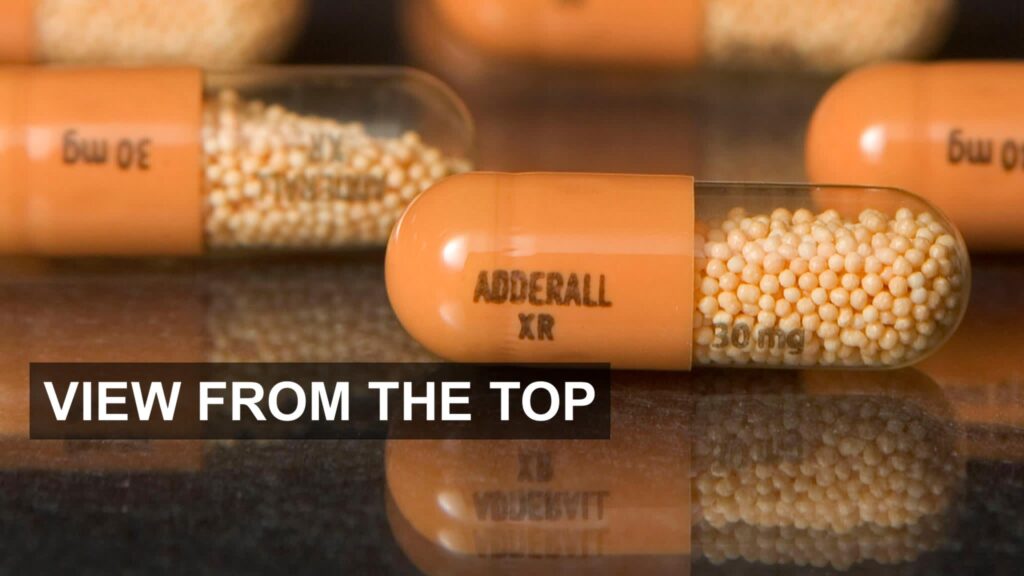Adderall is a commonly prescribed medication for managing Attention Deficit Hyperactivity Disorder (ADHD) and narcolepsy. While it’s effective for these conditions, many individuals and healthcare professionals need to understand how long Adderall stays in your system. This knowledge is important for ensuring proper dosing, understanding potential drug interactions, and managing any side effects. In this article, we’ll explore the factors influencing the duration of Adderall in your system, how long it typically lasts, and what affects its clearance.
Understanding Adderall and Its Composition
Adderall is a stimulant medication that contains a combination of amphetamine salts, including amphetamine and dextroamphetamine. These compounds work together to increase levels of certain chemicals in the brain, helping improve focus, attention, and impulse control in individuals with ADHD.
Types of Adderall
There are two main formulations of Adderall:
- Adderall (Immediate-Release): This version of Adderall works quickly and is typically effective for about 4 to 6 hours.
- Adderall XR (Extended-Release): This formulation is designed to provide a longer duration of effect, usually lasting 8 to 12 hours.
How Adderall Works in Your Body
Once ingested, Adderall is absorbed into the bloodstream through the digestive tract. It then travels to the brain where it increases the levels of neurotransmitters like dopamine and norepinephrine. This results in improved focus and reduced impulsivity.
Absorption and Metabolism
The absorption rate of Adderall can vary based on whether you are taking the immediate-release or extended-release version. After absorption, the drug is metabolized by the liver and then excreted through the kidneys. The efficiency of this process can impact how long Adderall stays in your system.
Factors Affecting How Long Adderall Stays in Your System
Several factors influence how long Adderall remains detectable in your body:
1. Dosage and Frequency of Use
The dosage and frequency with which Adderall is taken can significantly affect how long it stays in your system. Higher doses and more frequent use can lead to longer detection times.
2. Metabolism
Individual metabolic rates vary widely. People with faster metabolisms will process and eliminate Adderall more quickly than those with slower metabolisms. Factors like age, body weight, and overall health can affect metabolic rate.
3. Kidney and Liver Function
Since Adderall is metabolized by the liver and excreted by the kidneys, any impairments in liver or kidney function can prolong the drug’s presence in the body.
4. Hydration and Diet
Hydration levels and diet can also impact how quickly Adderall is metabolized and excreted. Staying well-hydrated and maintaining a balanced diet supports the body’s natural elimination processes.
How Long Does Adderall Stay in Your System?
The duration for which Adderall stays in your system depends on several factors, including the formulation and individual differences. Here’s a general overview:
1. Immediate-Release Adderall
- Plasma Half-Life: The plasma half-life of immediate-release Adderall is approximately 9 to 14 hours. This means that after this time, half of the dose has been eliminated from your bloodstream.
- Detection Time: Immediate-release Adderall can typically be detected in urine for up to 48 hours after the last dose. In some cases, it may be detectable for a bit longer, depending on individual factors.
2. Adderall XR (Extended-Release)
- Plasma Half-Life: The extended-release formulation has a similar half-life to the immediate-release version but is designed to provide effects over a longer period.
- Detection Time: Adderall XR may be detectable in urine for up to 72 hours or slightly longer. The extended-release formulation’s longer duration of action can lead to extended detection times.

Drug Tests and Adderall
Understanding how long Adderall stays in your system is crucial, especially if you are subject to drug testing. Adderall can be detected through various types of drug tests:
1. Urine Tests
Urine tests are the most common type of drug test used to detect Adderall. As mentioned, Adderall can typically be detected in urine for up to 48 to 72 hours after use, depending on the formulation.
2. Blood Tests
Blood tests are less common for routine drug screening but are more accurate for detecting recent use. Adderall is usually detectable in blood for up to 24 hours after ingestion.
3. Saliva Tests
Saliva tests can detect Adderall for a shorter duration, generally up to 24 hours after use. These tests are less common but are sometimes used for drug testing.
4. Hair Tests
Hair tests have a much longer detection window but are less commonly used. Adderall can be detected in hair for up to 90 days, although this method is not typically employed for standard drug testing.
Managing Adderall Use and Drug Testing
If you are taking Adderall and are concerned about drug testing, consider the following tips:
1. Inform Your Healthcare Provider
Always inform your healthcare provider about your Adderall prescription. They can provide documentation or support if drug testing is required.
2. Adhere to Prescribed Dosage
Follow the prescribed dosage and schedule provided by your healthcare provider. Avoid taking more than directed, as higher doses can lead to prolonged detection times and potential side effects.
3. Stay Hydrated
Maintaining proper hydration supports your body’s natural elimination processes and may help in metabolizing and excreting the drug more efficiently.
Conclusion
Adderall is an effective medication for managing ADHD and narcolepsy, but understanding how long it stays in your system is important for managing its use and complying with drug testing protocols. The duration Adderall remains detectable in your system depends on factors such as the formulation, dosage, metabolism, and individual health conditions. Immediate-release Adderall generally stays in the system for up to 48 hours, while Adderall XR may be detectable for up to 72 hours.
By being informed about how Adderall works and how long it stays in your system, you can better manage your medication and its implications for drug testing. Always consult with your healthcare provider for personalized advice and guidance related to your medication and overall health.



